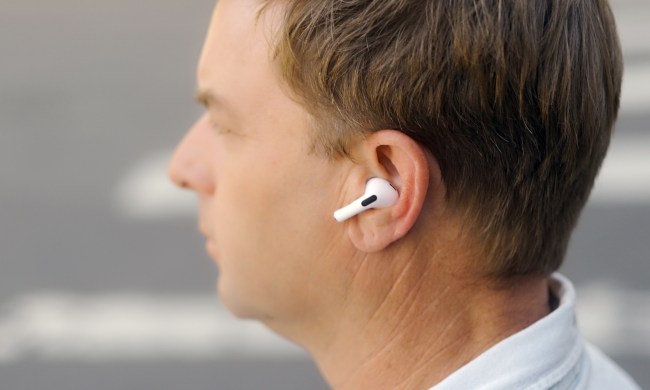Remember when Apple declared its “courageous” decision to eliminate the headphone jack on the iPhone 7? That was way back in 2016 and, at the time, we felt it was the wrong move. Now, it appears that Apple is driving the final nail into its wired audio support: Superstar Apple analyst Ming-Chi Kuo recently predicted the company will stop providing free EarPods with its iPhones, starting with the iPhone 12. And we’re just fine with that.

Surprised? Don’t be. Apple’s EarPods are the latest version of the iconic white wired buds that have been included with every Apple iPod and iPhone since 2001. So while we should all take a moment to reflect on the end of a remarkable 19-year era, let’s not shed too many tears. It’s more than time for the EarPods to take their final bow.
Let’s take a quick walk down the memory lane of wireless audio to understand why we’re suddenly ready to throw the first handful of dirt onto the EarPods’ coffin, especially when we said just four years ago that “wireless headphones just can’t compete with their wired counterparts.”
The rise of true wireless earbuds
Now, 2016 wasn’t just the year that Apple became the first smartphone maker to ditch the headphone jack — something many of its competitors have done since then — it was also the year that Apple introduced us to the AirPods. The AirPods weren’t the first wireless headphones, they weren’t the first true wireless earbuds, and frankly, they didn’t even sound that great.
But despite all of this and despite the immediate and predictable mocking of their golf-tee-in-the-ear design, the AirPods became an overnight sensation. Apple had once again created the most iconic product on the planet. The secret to the AirPods’ success was that, in typical Apple fashion, they “just worked.”
They paired with the iPhone in a flash, right out of the box. The seamlessness of that experience can’t be overstated, and it’s one that every wireless headphone maker has striven to emulate. Better yet, the same Apple-designed W1 chip that made pairing a snap also made the wireless connection more reliable than anything else we’d seen so far.
So while the AirPods impressed no one with their audio quality, they showed the world that true wireless earbuds could offer a really great user experience, and that changed the game permanently.
In the four years since the AirPods emerged, we’ve seen nothing short of a tsunami of innovation in the wireless audio world: Easy pairing, great battery life, voice assistant access, active noise cancellation, superb audio quality, and even full protection from the elements.
The best part? You don’t need to spend anywhere near Apple’s AirPod prices to take advantage of most of these advances.
There will still be times and places when a wired set of earbuds is preferable, but these are fading fast. Long battery life means range anxiety is almost a thing of the past. New accessories like the AirFly let you use wireless buds with headphone jacks, and some true wireless earbuds let you switch between wired and wireless modes.
Will Apple actually stop shipping EarPods with its iPhones? The company’s track record speaks for itself. If Apple is going all-in on wireless audio, we’re (finally) good with that.



